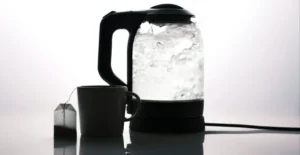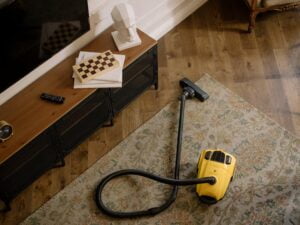How to Clean Cloudy Glasses and Restore Their Shine?
How clean Cloudy glasses can be frustrating, especially when you’ve just run them through the dishwasher. If you’re tired of dealing with hazy glassware, there are effective ways to restore its crystal-clear shine without having to wash it twice. In this article, we’ll explore the causes of cloudy glasses, provide step-by-step instructions on how to clean them and share tips on preventing future buildup. Let’s get started!
What Causes Cloudy Glasses?
There are two common causes of cloudy glasses: hard water buildup and etching. Hard water deposits are composed of minerals like calcium and magnesium that cling to the surface of the glass, leaving behind a milky residue that is resistant to normal dishwasher cycles. On the other hand, etched glasses have small scratches and dings, often caused by interactions with soft water, that cannot be repaired. Understanding the cause of cloudiness is essential in determining the most effective cleaning method.
Cleaning Cloudy Glasses
Restoring cloudy glasses caused by hard water mineral buildup is a straightforward process. Here’s a step-by-step guide on how to make your cloudy glasses crystal clear again:

Step 1: Gather Your Supplies
Before you begin cleaning, gather the following supplies:
- White vinegar
- Dish soap
- Warm water
- Sink or deep dishpan
- Dishtowel
- Microfiber cloth
- Sponge
Step 2: Test for Causes
To determine whether your glasses are foggy due to etching or hard water buildup, perform a spot check. Soak a small rag or dish towel in vinegar and rub a portion of the glass. If the cloudiness improves with each wipe, it is likely caused by hard water buildup and can be remedied.
Step 3: Soak in Vinegar
Place the cloudy glasses, such as wine glasses or tumblers, on their sides in the sink or a large dishpan. Fill the sink or dishpan with enough white vinegar to completely coat each glass. Allow the glasses to soak fully immersed in vinegar for about 15 minutes. The acidic properties of vinegar will help dissolve the mineral deposits.
Step 4: Hand Wash
After the soaking period, remove the glasses from the vinegar solution and hand wash them using dish soap and warm water. Gently scrub the inside and outside of the glasses to remove any remaining residue. Rinse thoroughly with water to ensure all traces of vinegar and soap are removed.
Step 5: Dry Properly
To prevent the formation of water spots, dry the glasses immediately after washing. Use a microfiber cloth or dish towel to dry each glass thoroughly. Avoid air drying, as it may lead to the formation of new water spots.
If your glasses don’t clear up after following these steps, they may be damaged by etching, which cannot be reversed. However, there are preventive measures you can take to minimize the risk of etching in the future.
Preventing Cloudy Glasses
To help prevent cloudiness in your glassware, consider the following tips:
- Add a rinse agent to each dishwasher cycle: Rinse agents can help prevent mineral buildup and improve the clarity of your glasses.
- Wash with a water temperature below 140°F: Excessive heat can contribute to cloudiness, so opt for lower water temperatures when running your dishwasher.
- Avoid excessive pre-rinsing: While it’s important to remove excess food particles before loading your dishwasher, excessive pre-rinsing can lead to more cloudiness. Let the dishwasher do its job.
- Use less detergent with soft water: If you have soft water, use the minimum amount of detergent recommended for effective cleaning. Excess detergent can contribute to etching.
- Regularly clean your dishwasher: Mineral buildup in your dishwasher can transfer to your glassware. Clean the dishwasher regularly to prevent this buildup.
By following these preventive measures, you can maintain the clarity and shine of your glassware for years to come.
Conclusion
Cloudy glasses are a common annoyance, but with the right cleaning techniques and preventive measures, you can restore their crystal-clear appearance. Whether your glasses are affected by hard water buildup or etching, the steps outlined in this article will help you achieve sparkling results. Remember to test for the cause, soak the glasses in vinegar, hand wash with dish soap, and dry them properly. By incorporating preventive measures, such as using rinse agents and washing with lower water temperatures, you can keep your glassware looking its best. Cheers to clean and clear glasses!





